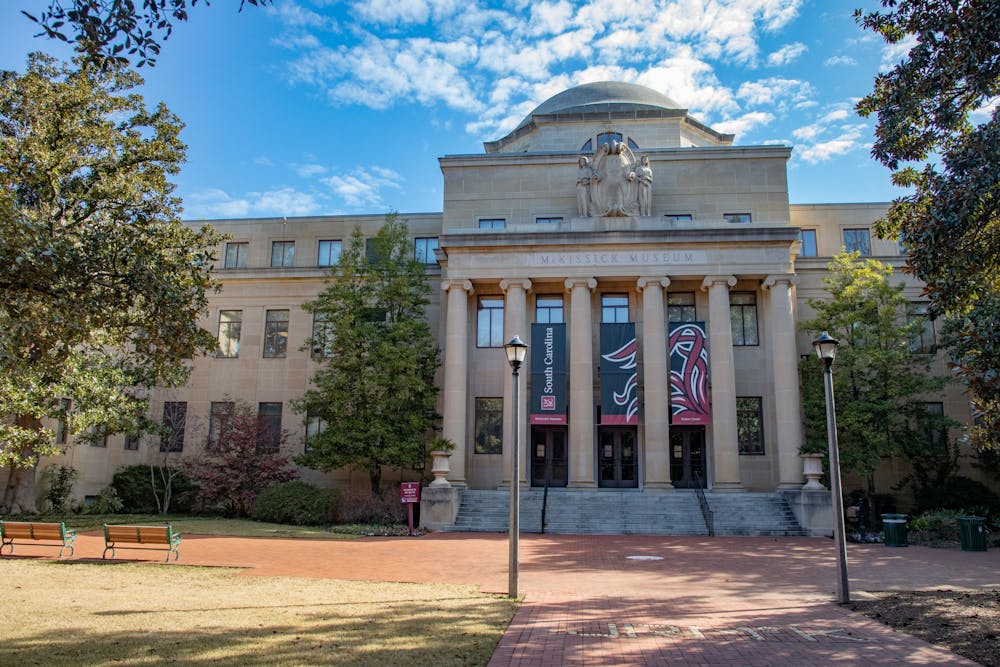While new provost Donna Arnett is a good fit for USC, she needs to work with different people on campus, push diversity and inclusion in all areas of campus and retain faculty members to be great.
Arnett, the former dean of Public Health at the University of Kentucky, was announced by the board of trustees as the new executive vice president for academic affairs and provost of USC in April, replacing interim Provost Stephen Cutler. Arnett started on Aug. 1.
Arnett was one of three finalists that visited USC the week of March 21 and participated in forums to inform the USC community about their intentions as potential provost. She is qualified for the job, as she has experience being a faculty member, a chair member and a dean at the University of Kentucky and the University of Minnesota.
Arnett also has support from faculty members such as Kathryn Luchok, an instructor of women and gender studies and anthropology at USC, and Audrey Korsgaard, a professor of management and the chair of the faculty senate. The faculty senate, former interim President Harris Pastides and current President Michael Amiridis worked together to pick Arnett.
"I do know that this is a person that our incoming president feels really good about and will be able to work with very effectively," Korsgaard said.
The provost and president work closely when making decisions like how to spend the budget and ensuring the university keep its accreditation, so people in these high leadership positions must be on the same page about the university's wellbeing.
Amiridis and Arnett will also work alongside the president's cabinet members. Julius Fridriksson was chosen in April alongside Arnett as the vice president for research. J. Rex Tolliver was chosen as vice president for student affairs, and Michaelle Dodenhoff was chosen as the vice president of development in July.
As the university settles into its new normal, Arnett must lead the university through a tumultuous time. The battle to teach critical race theory continues and there have seen movements in the SC Statehouse to limit the things professors can teach.
To handle these topics, our provost must take advantage of shared governance, which is the partnership between the president, the provost and faculty members. Everyone needs to work together in order to create a space where both students and faculty feel valued and safe. Arnett especially needs to work with Amiridis, who said he wants opinions from his colleagues.
Faculty and staff have expressed that shared governance and open communication are important when it comes to the senior management team making decisions.
"We want someone who is committed to shared governance, someone who similarly believes that universities work best as collegial communities, where colleagues consult one another," Carol Harrison, a professor of history and president of the American Association of University Professors campus chapter, said.
Faculty, staff and students have a different perspective than the senior management team does. There needs to be a conversation that takes each group's concerns into consideration when making decisions. This will create not only a thriving campus but also make all parts of the campus happier.
Another area Arnett will need to focus on is diversity and inclusion. She must work with the Office of Diversity, Equity and Inclusion to make sure that all students feel comfortable on campus and have a safe space to learn.
USC should be representative of South Carolina. USC Columbia's population of undergraduate African American students is 10.2% coming and is 16.25 percentage points under the South Carolina population of 26.45%. Arnett should increase not only the African American representation but the representation of all races and ethnicities. It's also important to faculty that USC is an inclusive place for all students.
"I think we're making steps to be a more inclusive campus from all angles," Luchok said, "From student ability, from racial inequities and economic inequities, etc. So I think there's kind of a will, but I think having a provost in place who is sensitive to those issues can only elevate it more."
It's also important that Arnett, who is in charge of faculty hiring, promotion, retention and tenure watches the high worker turnover rates the nation is seeing which is expected to be about 20% nationally this year and makes sure to keep the faculty we have in Columbia.
"Finding ways to attract and retain faculty and staff is a concern for all of us," Korsgaard said. "Working to keep our best (employees) is a constant challenge right now, so I'm hoping that our provost and the whole senior management team can help make that happen both on the faculty and staff side."
Arnett seems to have a plan for the future according to her presentation that really homed in on diversity and inclusion, research and student success. Hopefully, she will listen to faculty, staff and students about issues around campus and take them into consideration when making important decisions.

